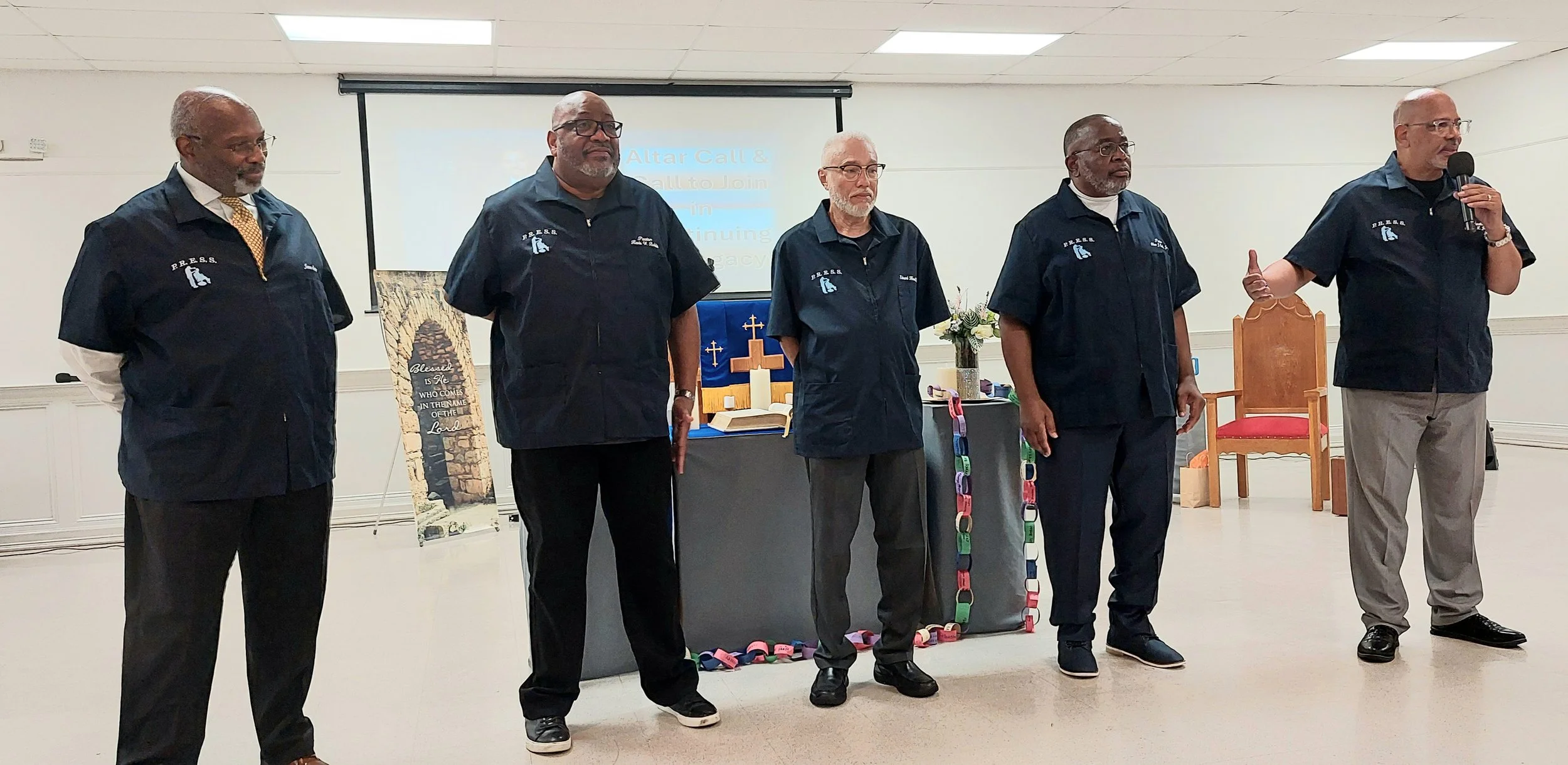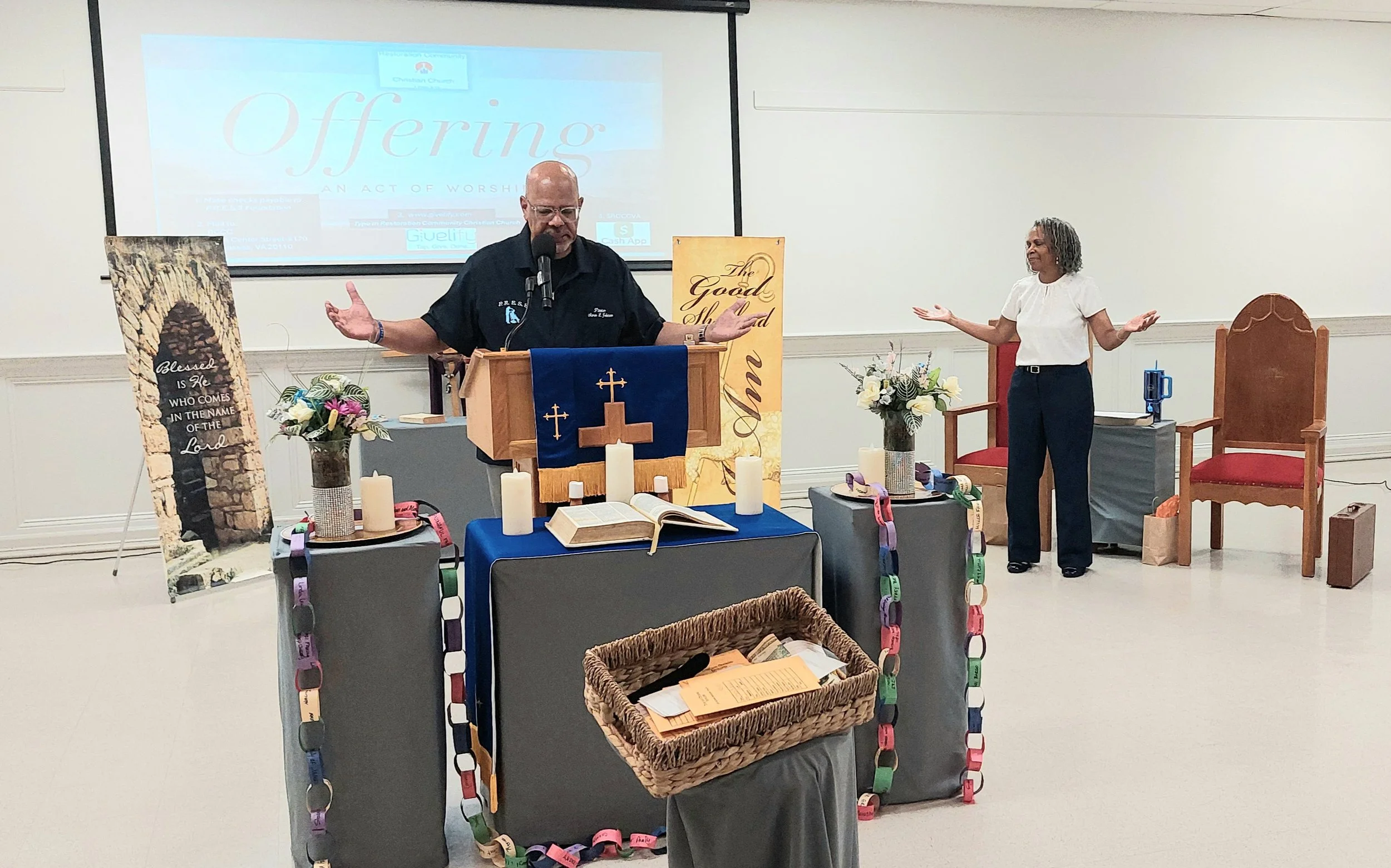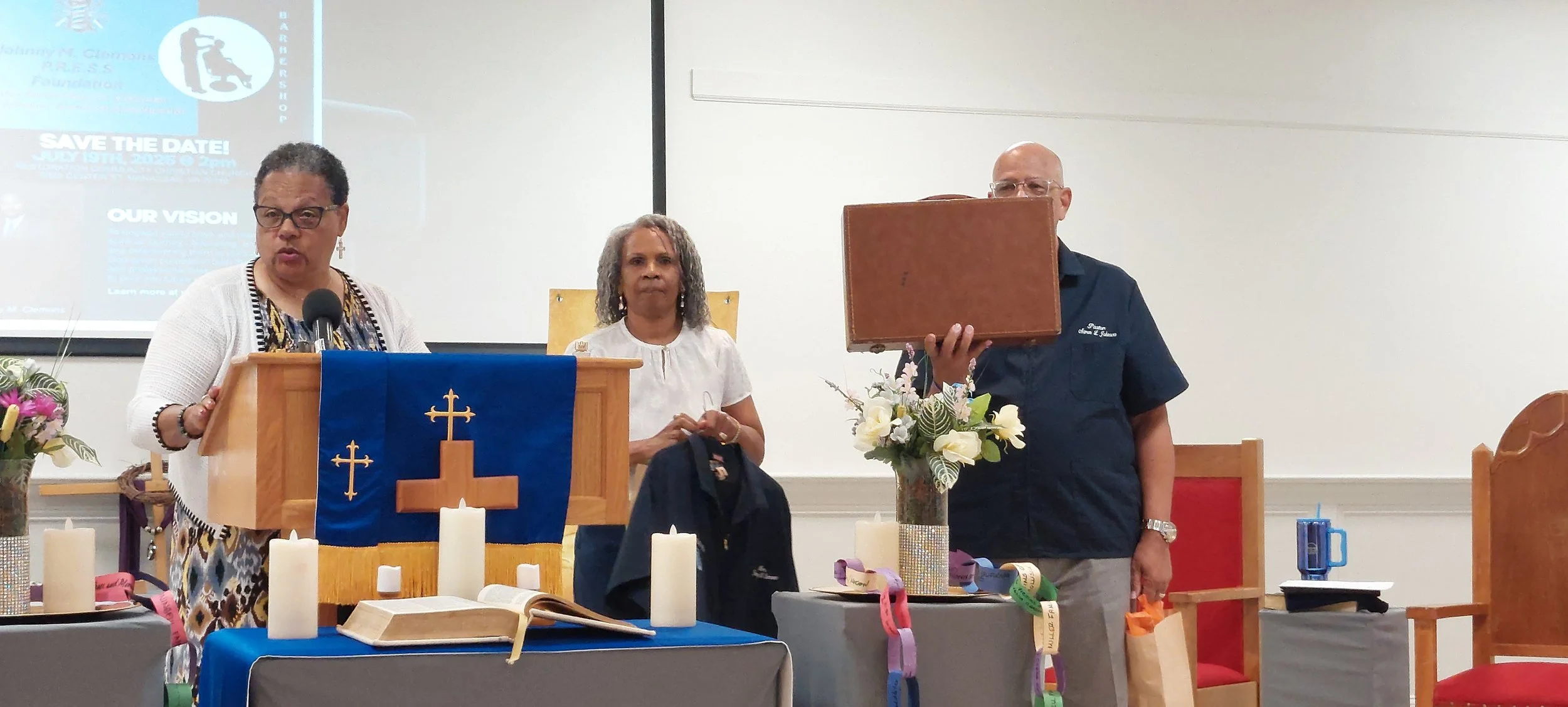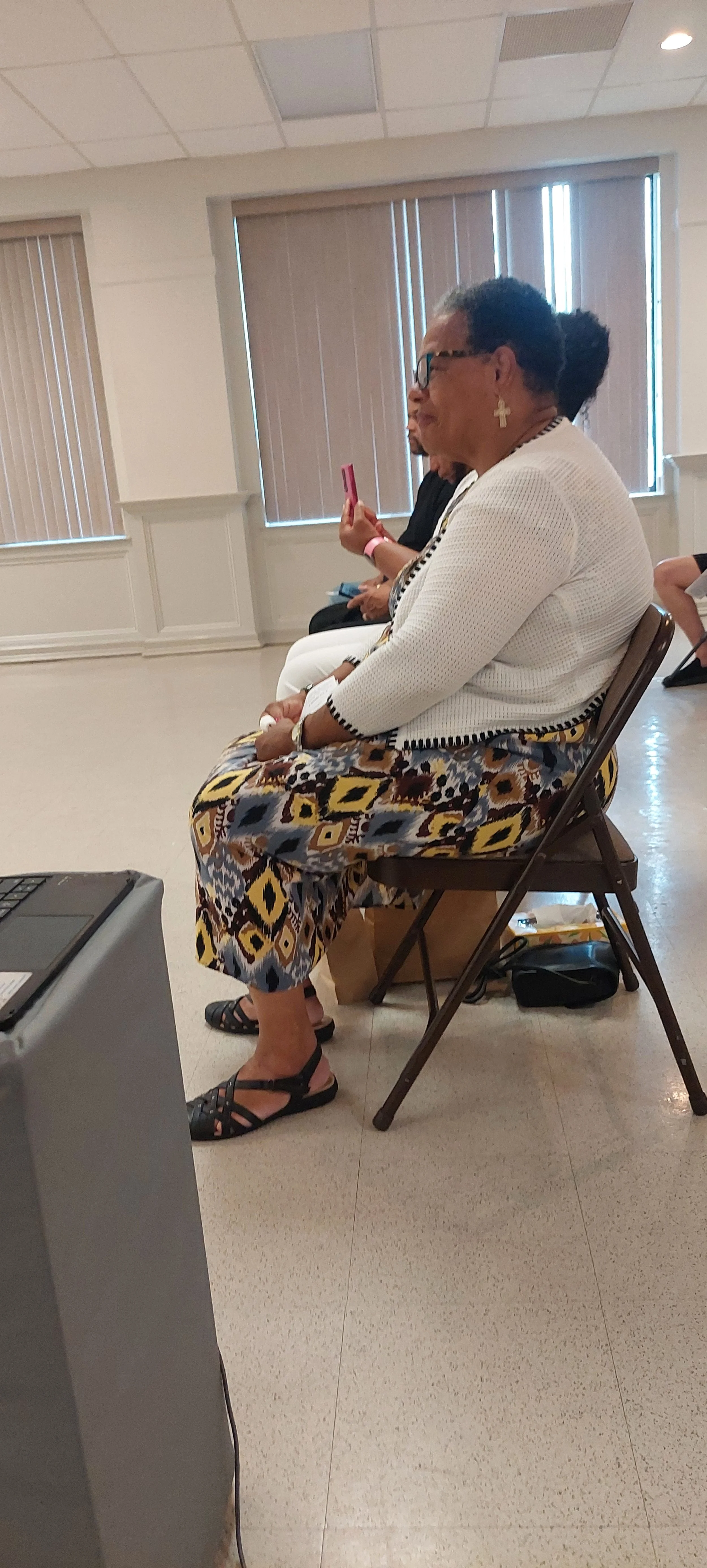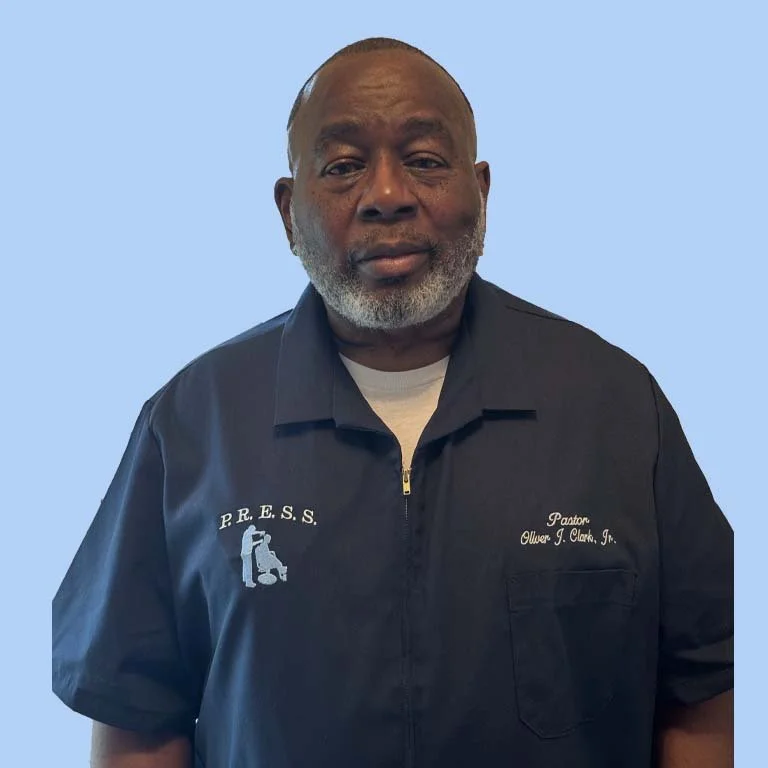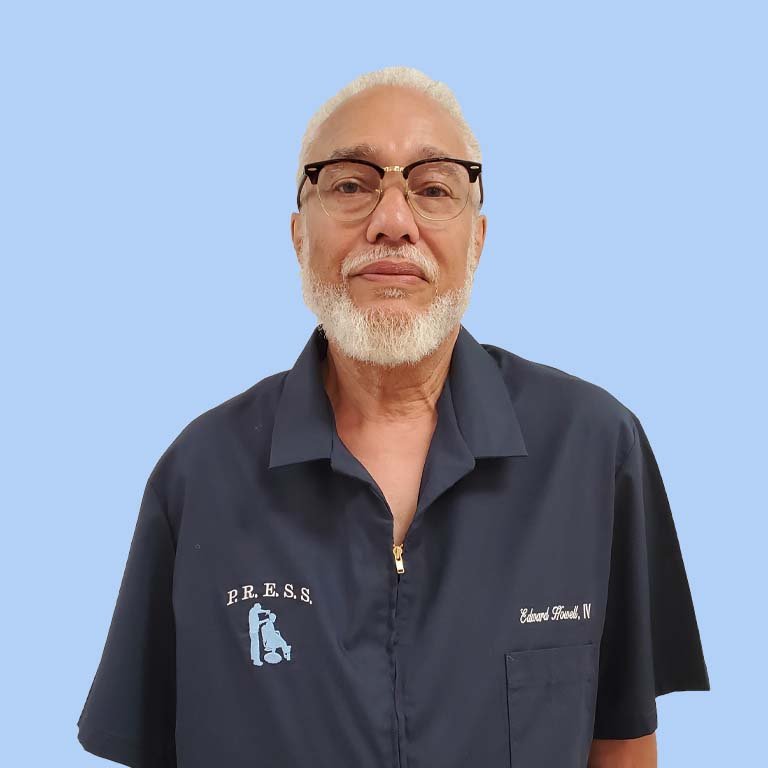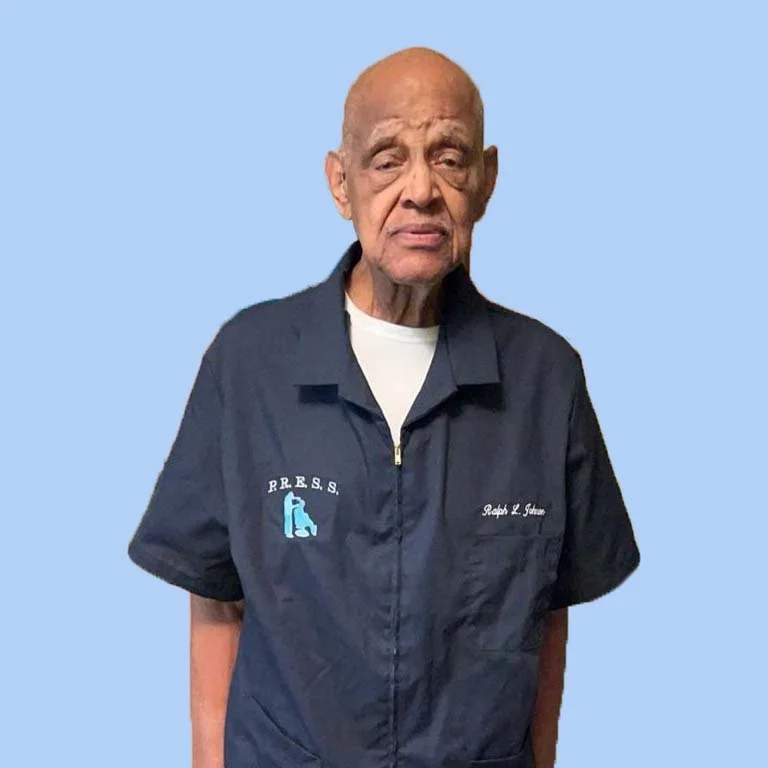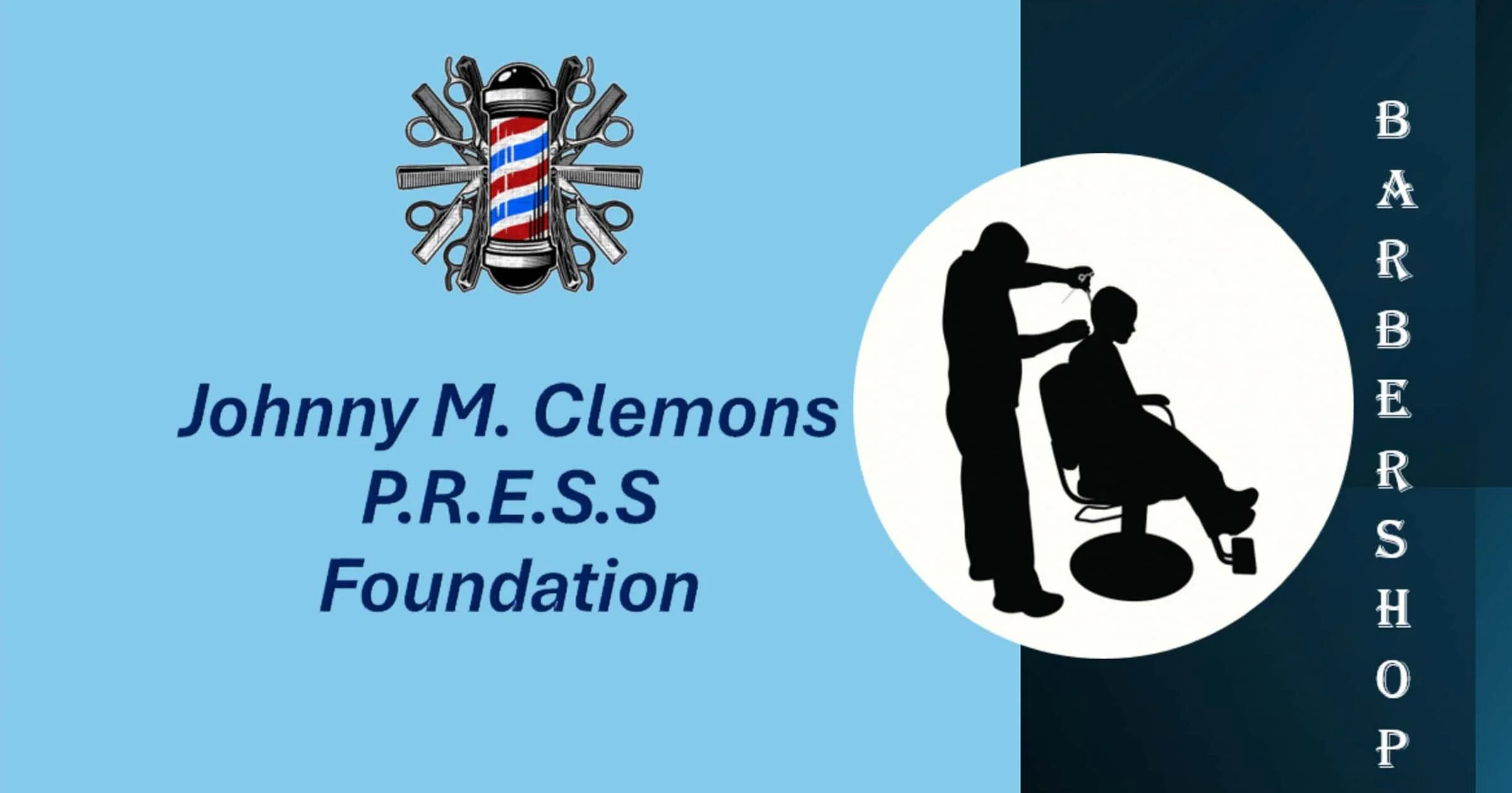
Meet the Chairman and Executive Administrator
Introducing the Barbershop
P.R.E.S.S
Pray to Restore and Empower Successful Sons
ABOUT THE BARBERSHOP
On July 14, 2024, while in the hospital in Fairfax, VA, our friend, Brother Johnny Clemons shared his heart and desire to launch a mentoring program for boys and young men. As he approached the end of his life on this side, he imparted his wishes to equip our boys and young men for success. With great conviction, he charged us with the responsibility of serving as Executive Directors of this program. He emphasized one powerful word: PRESS!
His wife, Regina, graciously shared some of his journal entries with us. As we read through them, we gained a better understanding of his thoughts and hopes for this initiative. Brother Clemons passed away peacefully at his home on July 21, 2024 at the age of 77.
OUR VISION
To engage young boys and men in their spiritual journey — educating, embracing, and empowering them to pursue their God-given purpose in every area of life — so they are equipped to be influential leaders who positively impact future generations.
OUR MISSION
Rooted in 2 Timothy 2:1–2, The Barbershop Board creates intentional, intergenerational spaces to mentor and equip young men and boys in leadership, cultural awareness, history, discipline, integrity, dignity, and identity. Through relational discipleship and practical teaching, we prepare them to thrive as husbands, fathers, brothers, and sons— empowered to lead with purpose and pour into future generations.
The Barbershop
This ministry was to begin with the establishment of the Board, known as “The Barbershop.” Historically, the barbershop has served as a foundational and informal mentoring space for young Black men and boys. It was in these spaces—filled with the sounds of storytelling, laughter, debate, and games like chess, checkers, and cards—that wisdom was passed down and character was shaped. More than just a grooming place, the barbershop became a hub of brotherhood, life lessons, and cultural exchange—a space where men poured into future generations, often as unsung mentors.
-
Though it’s hard to put an exact date on the first Black barbershops, it’s said that it was during the atrocities of slavery in the 19th century when Black barbers were first introduced to America. Because slaves were unjustly and inhumanely considered to be “property,” they were subject to the whim of their owners—one of those whims was being leased out to local establishments and neighbors that specialized in the grooming and barbering care of white men. Even when Black-owned shops did eventually arise as slavery fell, these shops were still mostly catering to a white customer base. As such, it was difficult for a Black man to approach a Black barber to reap the benefits of their skills. At the time, this was considered an economic necessity—catering mostly to white people. This, however, began to change as time went on.
Post-emancipation, Black barbers were now free to serve whoever they wanted—Black customers included. As a result, the floodgates for this profession opened wider than ever before. Seeing an opportunity for advancement, employment, and empowerment, Henry M. Morgan opened the first national chain of barber colleges in 1934—The Tyler Barber College. During this time—and certainly before—barbershops began becoming safe havens that were about more than just getting a haircut or a beard trim. These spaces were for the community, places where Black men and women could discuss social and societal reform, share ideas, and overall, find comradery and community in a time where it was needed most.
Barbershops remained the spots where societal change was catalyzed. Black barbershops were safe haven zones where Black liberation activists could gather and push forward change. Barbershops remain to be a safe haven—not unlike they were during times of slavery, war, economic issues, social shifts, and beyond. Today, Black barbershops thrive across the globe, and their impact on barbering, as a whole, continues to exude from the talented individuals who chose to become a part of this industry—then and now.



















